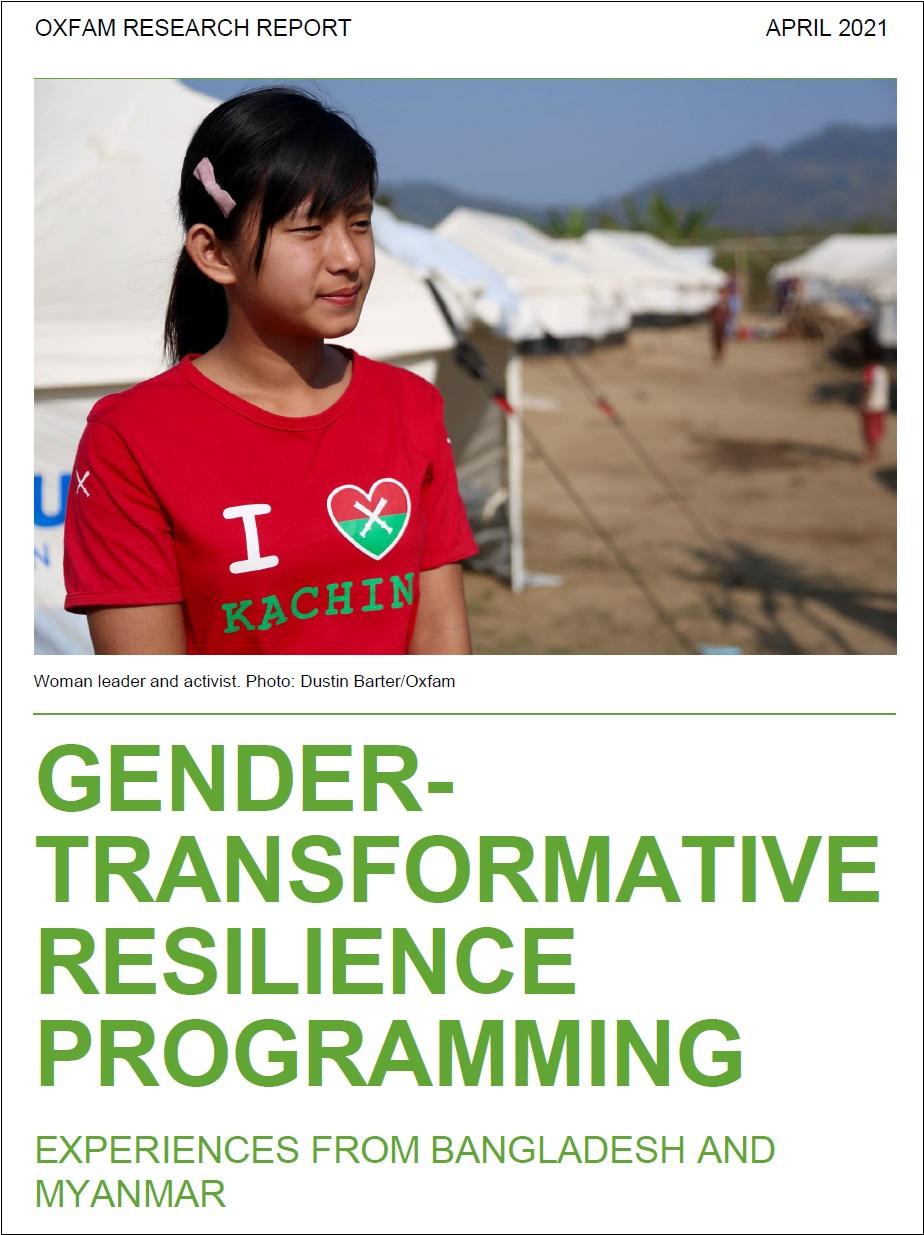Gender Transformative Resilience Programming: Experiences From Bangladesh And Myanmar
Limited research has focused specifically on the connection between gender transformation and resilient development, and a knowledge gap exists on how to contribute to gender transformation by achieving systemic changes and addressing the root causes of gender inequality in resilience and climate programming.
Thus, OXFAM has published a research report titled ‘Gender Transformative Resilience Programming: Experiences From Bangladesh And Myanmar’, authored by Zorica Skakun, Ines Smyth and Valerie Minne.
Download: Gender Transformative Resilience Programming: Experiences From Bangladesh And Myanmar
This study aims to build knowledge on how to contribute to gender transformation by achieving systemic changes and addressing the root causes of gender inequality in resilience and climate programming.
This research took a feminist and participatory research approach, and the report outlines the outcomes of learning journeys carried out in both countries. It looks specifically at progress made and challenges in relation to gender transformation, and shares the learning and recommendations that arose. The research took place between January 2019 and March 2020.
The research looked at three main questions:
1. What are we doing that is working/not working within resilience programmes to achieve gender transformative change?
2. Which strategies have led to gender transformation? How did they strengthen the resilience capacities (adaptive, absorptive, transformative)? What were the enabling factors/barriers?
3. How can we make resilience programmes more gender transformative? Which strategies can be used to increase and scale up gender transformation? What interventions can be implemented to overcome the barriers?
The research included a literature review, gender analyses and in-country learning journeys in Bangladesh and Myanmar as sources of learning on how resilience programmes can achieve gender transformation. This research project mainly employed qualitative methods and used feminist and participatory action research as its core framework and approach.
Source: OXFAM


